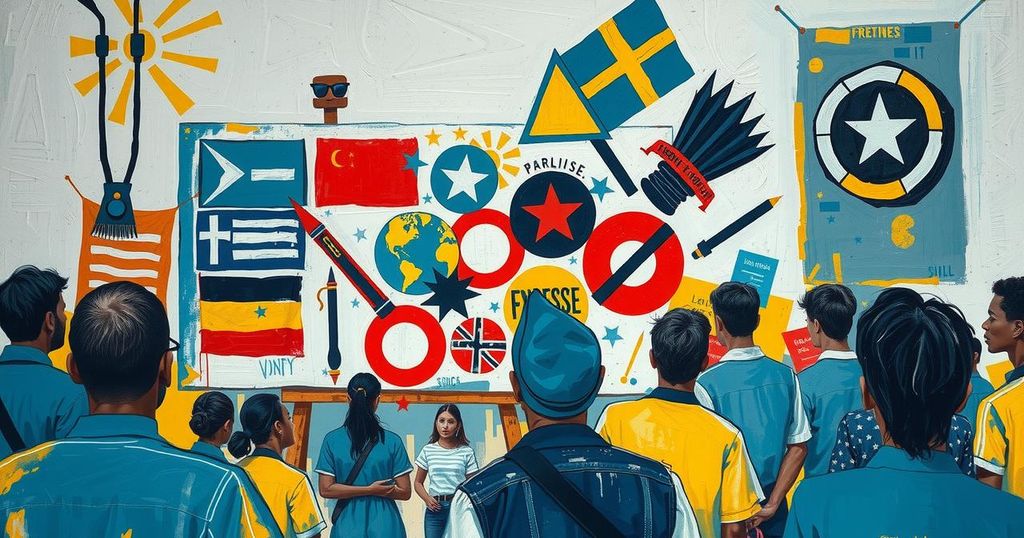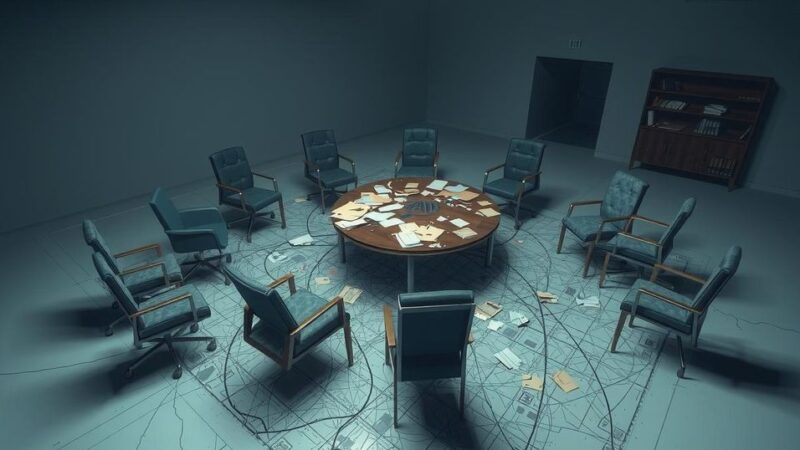Rwandan Minister Jean-Damascène Bizimana accuses Belgium of funding organizations that deny the 1994 genocide against the Tutsi, contrary to claims made by Belgian officials. He criticizes Belgium’s failure to prosecute genocide deniers and enforce international laws against groups like the FDLR. Amid rising tensions related to the DRC, President Kagame condemns Belgium’s actions, leading Rwanda to sever diplomatic ties with Belgium amidst broader regional conflicts and EU sanctions against Rwanda.
Jean-Damascène Bizimana, the Minister of National Unity and Civic Engagement of Rwanda, has publicly asserted that Belgium is financing organizations that deny the 1994 genocide against the Tutsi. Following a statement by Belgian deputy prime minister and foreign affairs minister, Maxime Prevot, emphasizing Belgium’s commitment to addressing genocide denial, Bizimana contradicted these claims by highlighting Belgium’s financial support of groups such as CLIIR and JAMBO ASBL, affiliated with notable genocide denial figures.
According to Minister Bizimana, the funding extends to organizations like CLIIR, directed by Joseph Matata, and JAMBO ASBL, founded by supporters of the PARMEHUTU, including descendants of convicted genocide perpetrators. He also mentioned Agnès Mukarugomwa, mother of Laure Uwase, whose radio station promotes harmful narratives, underscoring Belgium’s problematic role in this context.
Bizimana has criticized Belgium for failing to prosecute individuals engaged in genocide denial, despite their presence within its borders, including Belgian nationals such as Peter Verlinden and Father Serge Desouter. He emphasized that the country does not uphold UN Resolution 2150, which calls for specific actions against the FDLR, a group responsible for the genocide and still operating today.
Furthermore, he pointed out Belgium’s reluctance to condemn the Kinshasa regime for its collaboration with the FDLR. He raised questions regarding Belgium’s sincerity in promoting humanitarian law, particularly in light of ongoing issues facing Congolese refugees displaced since 1994.
Renowned British investigative journalist Linda Melvern echoed Bizimana’s sentiments, detailing that the genocidal forces defeated in 1994 continued to exist today and perpetuate denial narratives blaming the victims. Her recent publication, “Intent to Deceive: Denying the Genocide of the Tutsi,” explores the various dimensions of genocide denial.
Amid escalating tensions in the eastern Democratic Republic of Congo, President Paul Kagame of Rwanda criticized Belgium for attempting to meddle in Rwandan affairs and for historically contributing to regional instability. Following these remarks, Rwanda severed its diplomatic ties with Belgium and ordered the departure of Belgian diplomats from the country.
Belgium’s alignment with the Congolese government has exacerbated ethnic tensions, as it has placed blame on Rwanda for issues stemming from the DRC’s governance failures. Furthermore, the EU’s recent sanctions on Rwandan military officers, instigated at Belgium’s behest, have been met with strong condemnation from President Kagame, who decried their unjust nature and highlighted the hypocrisy of the situation.
Overall, this situation illustrates the complicated dynamics surrounding genocide recognition and the struggle against denialism, emphasizing the importance of accountability in historical narratives.
In summary, the statements made by Minister Bizimana reveal Belgium’s controversial involvement in financing genocide denial organizations while simultaneously claiming to support humanitarian law. His criticisms highlight the lack of accountability regarding genocide deniers based in Belgium and raise significant issues about Belgium’s alliances and actions concerning the ongoing regional conflicts and humanitarian crises. The discourse on remembrance and accountability remains crucial, as illustrated by Linda Melvern’s investigation into genocide denial narratives. The situation underscores the need for a decisive international response to uphold the integrity of historical truths and ensure the protection of vulnerable populations.
Original Source: www.newtimes.co.rw






